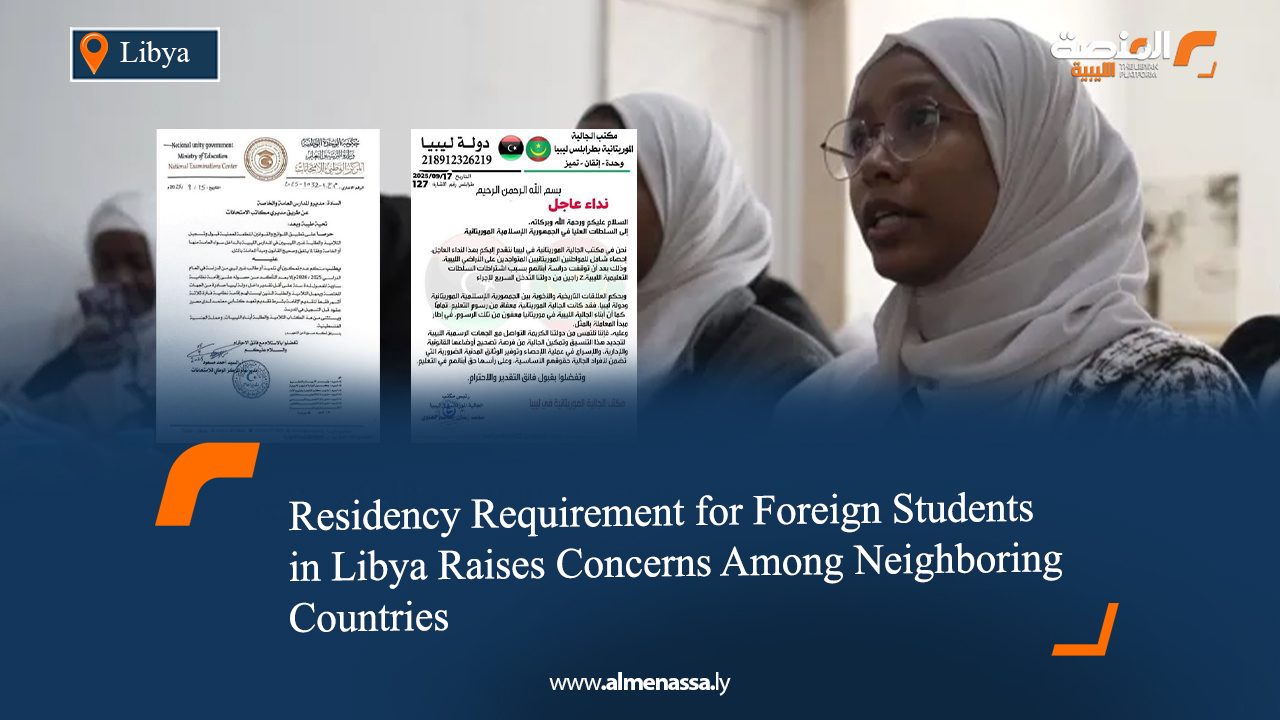The National Examinations Center in Libya has issued a new directive regulating the admission of non-Libyan students into public and private schools for the 2025–2026 academic year. The circular requires all foreign students to hold a valid residency permit of at least six months to enroll.
Students without legal residency are granted only a three-month grace period, provided that a notarized written pledge is submitted before registration. The decision, aimed at enforcing regulations and applying the principle of reciprocity, excludes children of Libyan mothers as well as Palestinian students, in line with Libya’s stated commitment to supporting just causes.
The directive has sparked concern among several Arab communities residing in Libya without official residency permits, particularly nationals of Morocco, Mauritania, and Sudan.
Morocco
The Consulate General of Morocco in Tripoli addressed a letter to Libya’s Ministry of Foreign Affairs, requesting that the Ministry of Education grant Moroccan families additional time to regularize their children’s status. The consulate highlighted the difficulties faced by the Moroccan community due to the absence of Moroccan diplomatic representation in Libya for several years.
Mauritania
The Mauritanian community office in Libya appealed urgently to its government to conduct a comprehensive census of Mauritanians in the country, after many children were unable to continue their studies under the new rules. The office stressed that Mauritanian students in Libya had previously been exempt from school fees, just as Libyan students in Mauritania are exempt, under the principle of reciprocity. It called on Libyan authorities to renew this arrangement and allow time for Mauritanians to correct their legal and administrative status.
Sudan
Sudanese families have also been affected, as their children are now subject to the same residency requirement despite earlier exemptions. In response, several Sudanese schools have been established in Libya, including the “Sudanese-Libyan Integration School” in Misrata, as well as the “Sudanese Friendship School” in Benghazi, “Al-Bayan School” in Misrata, and the “Sudanese Brotherhood School” in Tripoli. These schools follow the Sudanese curriculum and serve students from primary to secondary levels, but Libyan authorities stopped recognizing Sudanese schools in 2022. Parents have also complained about high tuition fees in some of these institutions, such as the Sudanese Brotherhood School in Tripoli, where annual costs reach around 1,400 Libyan dinars per student, in addition to registration fees. This had previously driven many Sudanese families to enroll their children in Libyan schools, but the new directive has now placed them in a difficult position.
Conclusion
With this policy, Libya is moving toward strict reciprocity in its treatment of foreign students, while still maintaining humanitarian exceptions—most notably for Palestinian students and children of Libyan mothers—balancing the enforcement of regulations with considerations of justice and solidarity


